His passion for gardening and nature is well known, but today it emerged that King Charles‘ exacting standards may have ruffled more than a few feathers among staff at his beloved Highgrove House.
According to reports, low pay and staff shortages, coupled with the monarch’s demanding attention to detail, has prompted an exodus of gardeners employed to keep his 15-acre pride and joy in Gloucestershire in good shape.
Over the past three years, 11 of the 12-strong gardening team have quit, including the head gardener and his deputy.
At one stage, in March 2022, half of the gardening team were earning minimum wage, an investigation by the Sunday Times found.
The King, who is known to patrol the grounds with a pair of secateurs, regularly offers feedback on the garden, writing handwritten notes to staff in red ink, expressing delight or upset at the progress of individual plants or flowers.
While some workers appreciate his interventions, others told the Sunday Times they found his feedback impolite and demoralising, it is claimed.
In late 2023, one member of staff filed a grievance against management claiming the gardening team were under resourced and struggling to fulfil the King’s demands.
The employee’s complaint said some staff had developed physical injuries because they were overwhelmed with work and that there was low morale among the team.
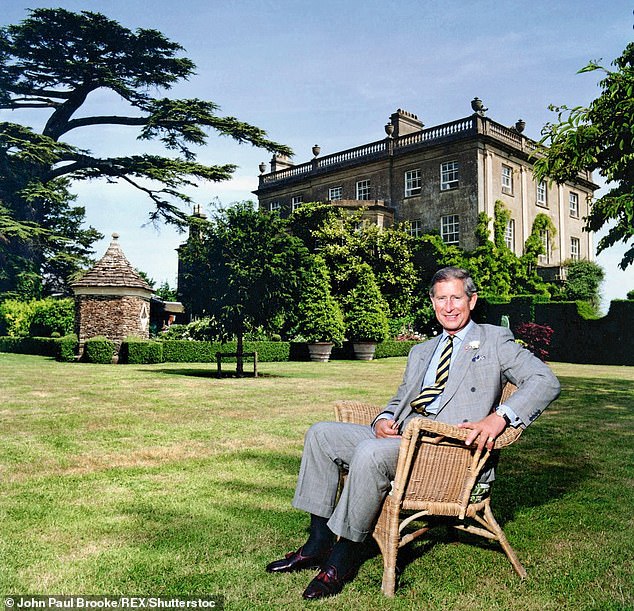
King Charles sitting on the lawn outside Highgrove, in Tetbury, Gloucestershire, in 2002
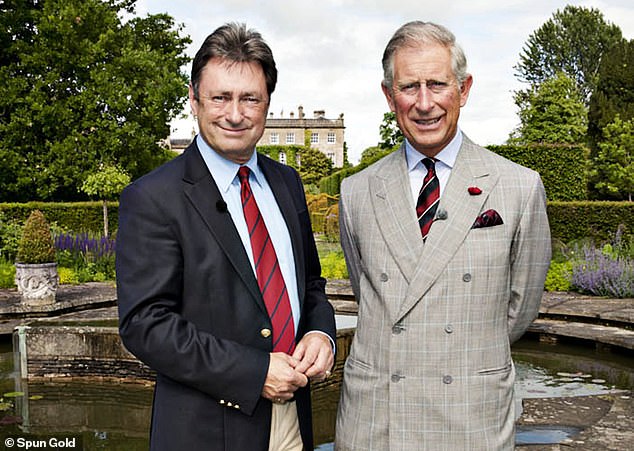
King Charles told gardener and broadcaster Alan Titchmarsh that he had enjoyed creating the gardens at Highgrove from ‘scratch’ over the past four decades
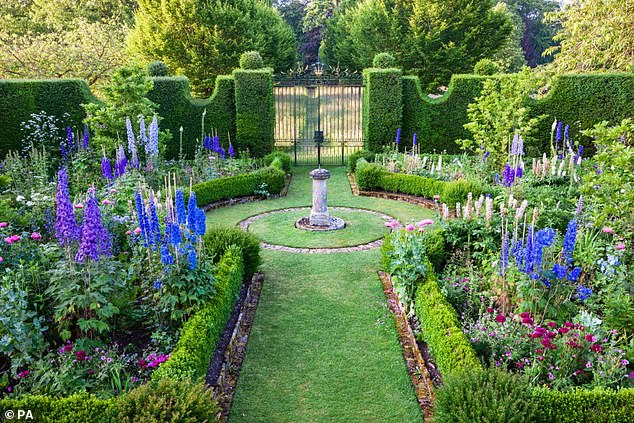
The Sundial garden in Highgrove is peppered with King Charles’ favourite purple and blue delphiniums
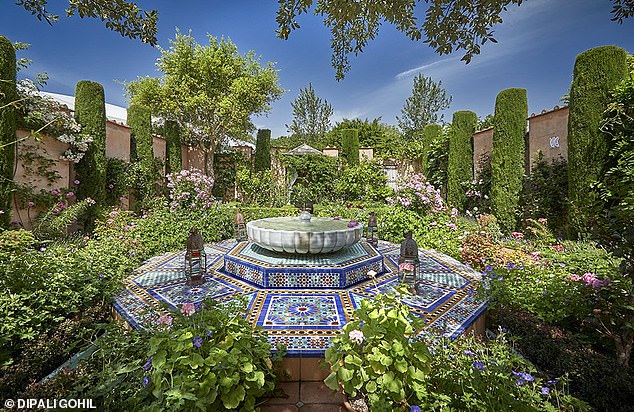
The Carpet Garden, which is inspired by two Turkish rugs inside the main house and was moved to Highgrove after being on display at the 2001 RHS Chelsea Flower Show
‘There is little management of HMTK (His Majesty the King’s) expectations and I know I would not be allowed to say we are understaffed,’ the claim said.
The gardener also alleged he was shouted at and given a dressing down by Constantine Innemee, the executive director of Highgrove, who is one of the King’s most trusted advisers, when he suggested to Charles that he would need a specialist member of staff if he wanted to cultivate his magnolias in a specific way.
The grievance led to an external investigation by the King’s Foundation, the charitable organisation that now runs the garden.
Although that inquiry found evidence of ‘staff shortages’ and suggested pay be reviewed if it continued to be ‘an issue for recruitment and retention’ of staff, the complaint about Mr Innemee’s management style was not upheld.
The garden at Highgrove has been King Charles’ pet project for the past 45 years.
In an interview with his friend, gardener and broadcaster Alan Titchmarsh, Charles previously explained that he was attracted to buy the property, in 1980, because of its ‘blank canvas’ garden.
‘I actually planned everything myself, I did the whole thing, I chose all the plants,’ the King said.
‘I love evening patrol at the weekend. As I potter about I notice things and weed or prune bits off. I’m sure most people come here and think I don’t do anything. But I do.’
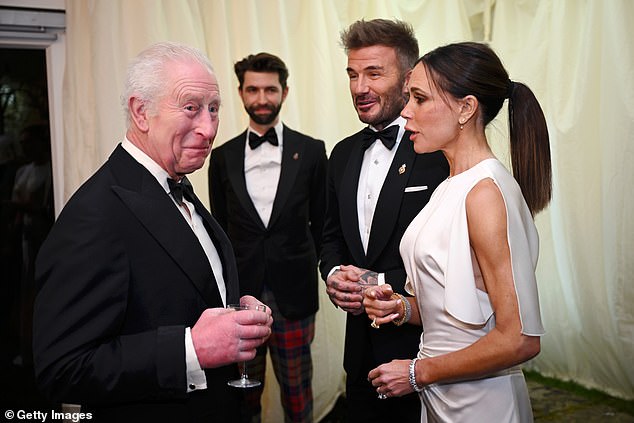
Constantine Innemee (back), executive director of Highgrove House, looks on as King Charles meets David and Victoria Beckham, in February
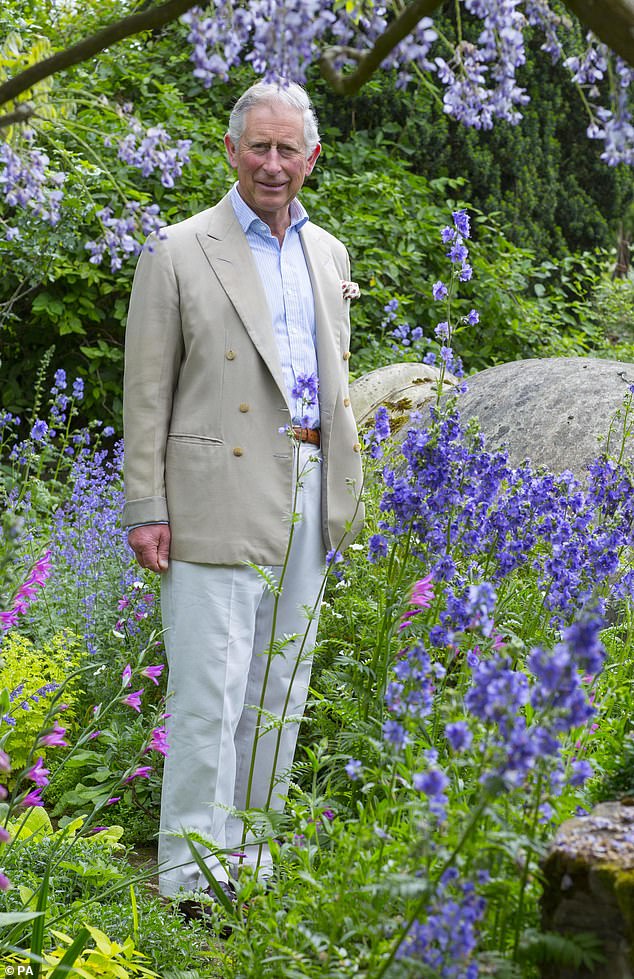
Highgrove attracts 40,000 visitors to its gardens, which are maintained by the King’s Foundation, every year
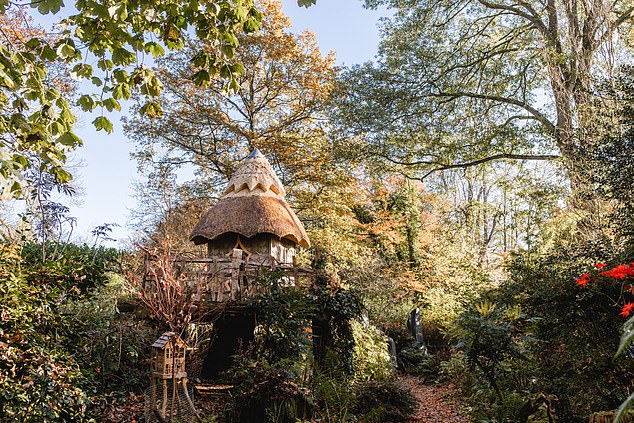
The Treehouse at Highgrove was built in the 1980s for Princes William and Harry
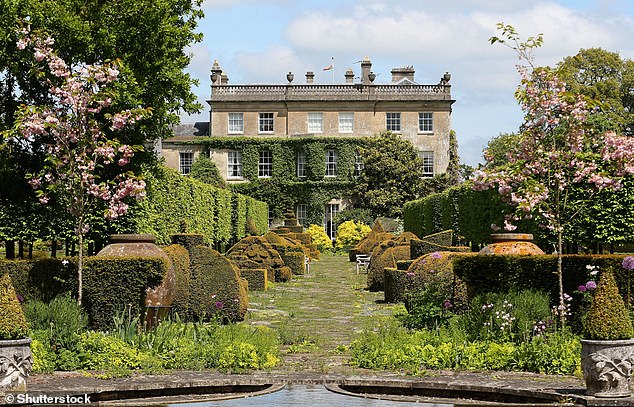
Turnover of gardening staff at Highgrove House is well below the national average, The King’s Foundation said
Over the past four decades the gardens have flourished, from the early kitchen garden and arboretum to the Sundial Garden, which showcases the King’s favourite delphiniums, the Thyme Walk and the Islamic-inspired Carpet Garden.
In the early years, Charles was selective with who he invited to his private residence but, as the gardens thrived, that changed and in the 2010’s and they were opened to the public. Now more than 40,000 people visit each year.
In a statement, a spokesman for The King’s Foundation denied Highgrove gardeners were paid below the going rate and insisted staff turnover and employment grievances were ‘well below the national average.’
‘We take staff welfare extremely seriously and strive to be an exemplary employer,’ he said.
‘We are proud to regularly report very high satisfaction rates in our annual staff survey. For the gardening team at Highgrove specifically, we regularly review guidance from the Professional Gardeners Guild for pay benchmarking.’
The spokesman also said that, since 2022, the operating profit at Highgrove had more than doubled and a new specialist education facility established to teach traditional heritage skills to students.
Sources familiar with the running of Highgrove and its estate expressed surprise at the extent of the newspaper’s claims and the level of vitriol in them.
Historically many of the King’s staff have worked in the gardens for decades, inspired by Charles’ passion for them, particularly as Prince of Wales.
Others have also described the King as being ‘hands-on’ – retreating to the estate at weekends to weed, prune, plant or mend fences – but never with any indication of personal aggression.
A spokesman for Buckingham Palace declined to comment.












